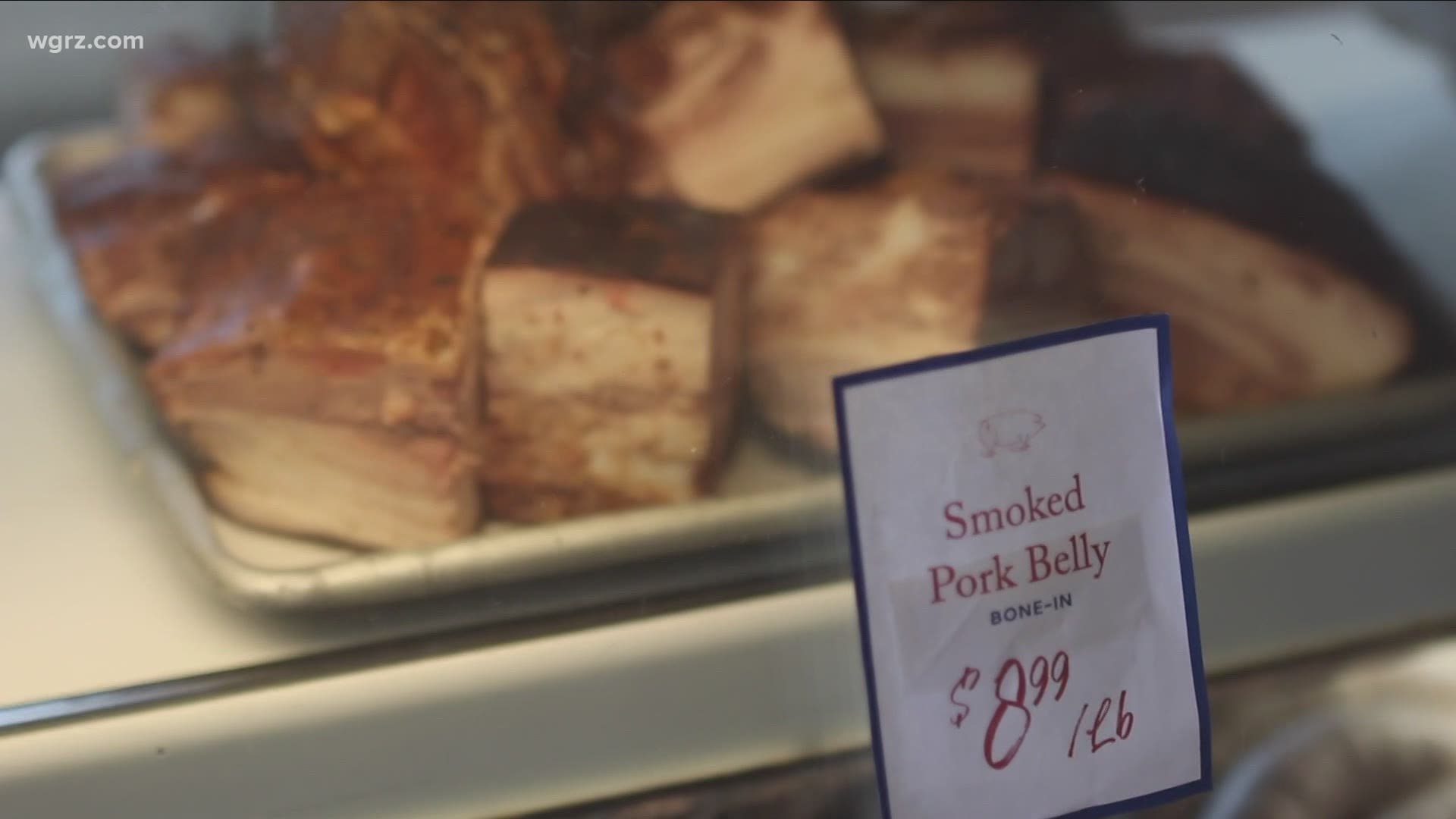DARIEN, N.Y. — When the pandemic hit it forced people to look at alternative sources to get things like meat.
So people started checking out local butcher shops and even directly from farms. But now there’s a problem? A backlog at processing facilities is causing headaches for farmers, butchers, and restaurants, especially those that promote themselves as farm to table.
"The majority of our meat comes from local farms," Tom Moriarty said. "So in order to get that local meat processing, let’s go through local slaughterhouses, and there’s only a few left,"
Tom Moriarity and his wife, Caitlyn, own Moriarty Meats, a butcher shop on Elmwood Avenue.
Since the pandemic began they’ve seen their business expand, but they are running into trouble because of a backlog at the USDA processing facilities in the area.
By law, they can only sell USDA-processed meat in their retail location.
“We did have an instance where a farmer was notified at the last minute that they weren’t able to bring in their animals," Caitlin Moriarty said. "So obviously that was a challenge for us”
So why is there a backlog?
As it turns out, USDA facilities are few and far between. Even before the COVID-19 pandemic, a farmer would need to book time at the processor months in advance.
"I would agree also that the farm to table is huge," Christine Britt said.
Britt co-owns Hartland Abattoir with her husband, they’re a USDA-processing facility in Gasport.
"People are now are wanting to get their meat from locally sourced farmers. However, getting it into a facility is difficult," Britt said.
Britt says it's a volume game. There simply aren’t enough facilities to process the amount of meat that is in demand right now.
"It's a dying industry for sure, and some things need to be done to make it right," Britt said.
Britt says the USDA or New York State should be looking at providing grants that processing facilities could use to expand.
Seeing bare shelves in the spring was a wake-up call for many consumers, and many of them wanted to stockpile food.
"You even look at that you’re looking at a six-month backlog on people being able to find a freezer just to be able to stock up," Michael Parkot said. "And part of that people feeling that food insecurity that they never have before."
Parkot operates Always Something Farm in Darien, he raises mangalitsa pigs. The pork lord, as his loyal customers call him, says he’s also had multiple processing appointments canceled because there isn’t room at a processing facility.
He reminisced about a long drive he recently had to take in order to get three pigs processed.
"We drove to Meadville, Pennsylvania, so three and a half hours each direction a trip down to drop off a trip down to pick up," Parkot said. "So really, when you look at it, we’ve got 14 hours of driving in order to get three pigs cut for retail so that we can try to make it through the winter out here."
Parkot says one solution that would help farmers would be support for the Prime Act.
"Which would allow custom exempt facilities to have the items that they process available for retail sale, but on a small scale," Parkot said. "It wouldn’t be going to restaurants but that would allow farmers to have their product into the farmers market."
2 On Your Side reached out to Congressman Chris Jacobs, who sits on the agriculture committee in the house, to see if he supports the Prime Act. His office sent the following statement after this story aired:
"I am aware of issues regarding meat processing capacity, especially in the face of COVID-19. While the PRIME Act is one potential solution, I intend to leverage my position on the House Agriculture Committee to examine all policies that will support our local farmers and producers and ensure the safety and reliability of our food supply."

